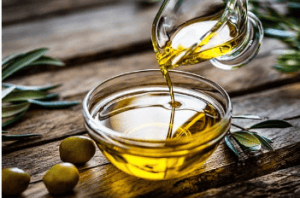There are few food ingredients that have as many benefits as olive oil. This nutritional oil is rich in compounds that are good for our health.
One of the most substantial benefits of olive oil is the positive impact it has on your heart. If it is consumed on a regular schedule, it boasts a reduced risk of cardiovascular disease.
Olive oil has been a staple for years. The oil is made of monounsaturated fats, specifically oleic acid. The monounsaturated fats help reduce bad LDL cholesterol and increase good HDL cholesterol.
Olive oil is extracted from the fruit of the olive tree through crushing, milling and pitting the olives. Besides its healthy fat content, olive oil is high in antioxidants, including vitamin E and polyphenols. These compounds have anti-inflammatory properties that protect cells from oxidative damage. They also contribute to healthier blood vessels and reduced blood pressure and Atherosclerosis. Atherosclerosis is a buildup of plaque in the arteries.
Even though olive oil is calorie dense, its monounsaturated fats have been shown to help us feel full longer, which can lead to reduced caloric intake and help with weight loss efforts. Even more, research suggests that olive oil may strengthen insulin sensitivity and glucose metabolism, which can benefit people with diabetes or those at risk of developing diabetes.
A diet rich in olive oil has been associated with better cognitive function and memory retention. Recent research has shown that olive oil can help fight Alzheimer’s disease. “The anti-inflammatory Oleocanthal is known for being able to clear proteins associated with the development of Alzheimer’s disease,” states The Olive Tap. Also, vitamins E and K are present in olive oil, which can assist in fighting mental decline and dementia.
Extra virgin olive oil involves minimal processing and retains the most antioxidants and phytonutrients. Extra virgin olive oil adds flavor and richness to foods. “Extra virgin olive oil (EVOO) contains the highest percentage of polyphenols and antioxidants, states UC Davis Health. That’s because it goes through a single processing procedure whereas other types are processed more. More processing causes more polyphenols and antioxidants to be lost.”
Olive oil is a nutrient-rich food packed with essential compounds that support overall well-being. Abundant in antioxidants and anti-inflammatory properties, it helps safeguard cells from oxidative damage. Additionally, incorporating olive oil into a daily diet has been linked to improved cognitive function and memory retention. These benefits make it an excellent superfood, especially for seniors.






